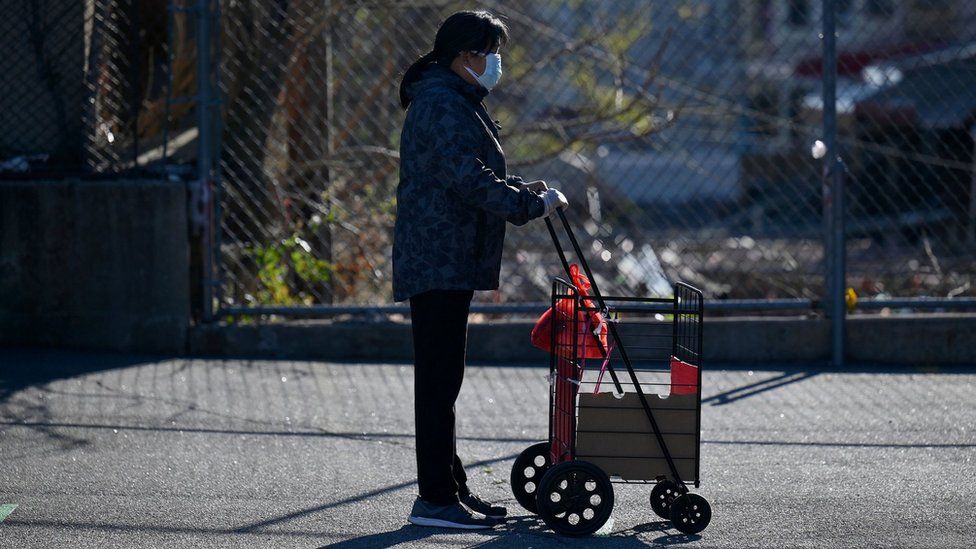Unemployed in the USA: 'I don’t know what to do'
-
[u">инфо[/u">[u">инфо[/u">[u">инфо[/u">[u">инфо[/u">[u">инфо[/u">[u">инфо[/u">[u">инфо[/u">[u">инфо[/u">[u">инфо[/u">[u">инфо[/u">[u">инфо[/u">[u">инфо[/u">[u">инфо[/u">[u">инфо[/u">[u">инфо[/u">[u">инфо[/u">[u">инфо[/u">[u">инфо[/u">[u">инфо[/u">[u">инфо[/u">[u">инфо[/u">[u">инфо[/u">[u">инфо[/u">[u">инфо[/u"> [u">инфо[/u">[u">инфо[/u">[u">инфо[/u">[u">инфо[/u">[u">инфо[/u">[u">инфо[/u">[u">инфо[/u">[u">инфо[/u">[u">инфо[/u">[u">инфо[/u">[u">инфо[/u">[u">инфо[/u">[u">инфо[/u">[u">инфо[/u">[u">инфо[/u">[u">инфо[/u">[u">инфо[/u">[u">инфо[/u">[u">инфо[/u">[u">инфо[/u">[u">инфо[/u">[u">инфо[/u">[u">инфо[/u">[u">инфо[/u"> [u">инфо[/u">[u">инфо[/u">[u">инфо[/u">[u">инфо[/u">[u">инфо[/u">[u">инфо[/u">[u">инфо[/u">[u">инфо[/u">[u">инфо[/u">[u">инфо[/u">[u">инфо[/u">[u">инфо[/u">[u">инфо[/u">[u">инфо[/u">[u">инфо[/u">[u">инфо[/u">[u">инфо[/u">[u">инфо[/u">[u">инфо[/u">[u">инфо[/u">[u">инфо[/u">[u">инфо[/u">[u">инфо[/u">[u">инфо[/u"> [u">инфо[/u">[u">инфо[/u">[u">инфо[/u">[u">инфо[/u">[u">инфо[/u">[u">инфо[/u">[u">инфо[/u">[u">инфо[/u">[u">инфо[/u">[u">инфо[/u">[u">инфо[/u">[u">инфо[/u">[u">инфо[/u">[u">инфо[/u">[u">инйо[/u">[u">инфо[/u">[u">инфо[/u">[u">инфо[/u">[u">инфо[/u">[u">инфо[/u">[u">инфо[/u">[u">инфо[/u">[u">инфо[/u">[u">инфо[/u"> [u">инфо[/u">[u">инфо[/u">[u">инфо[/u">[u">инфо[/u">[u">инфо[/u">[u">инфо[/u">[u">инфо[/u">[u">инфо[/u">[u">инфо[/u">[u">инфо[/u">[u">инфо[/u">[u">инфо[/u">[u">инфо[/u">[u">инфо[/u">[u">инфо[/u">[u">инфо[/u">[u">инфо[/u">[u">инфо[/u">[u">инфо[/u">[u">инфо[/u">[u">инфо[/u">[u">инфо[/u">[u">инфо[/u">[u">инфо[/u"> [u">инфо[/u">[u">инфо[/u">[u">инфо[/u">[u">инфо[/u">[u">инфо[/u">[u">инфо[/u">[u">инфо[/u">[u">инфо[/u">[u">инфо[/u">[u">инфо[/u">[u">инфо[/u">[u">инфо[/u">[u">инфо[/u">[u">инфо[/u">[u">инфо[/u">[u">инфо[/u">[u">инфо[/u">[u">инфо[/u">[u">инфо[/u">[u">инфо[/u">[u">инфо[/u">[u">инфо[/u">[u">инфо[/u">[u">инфо[/u"> [u">инфо[/u">[u">инфо[/u">[u">инфо[/u">[u">инфо[/u">[u">инфо[/u">[u">инфо[/u">[u">инфо[/u">[u">инфо[/u">[u">инфо[/u">[u">инфо[/u">[u">инфо[/u">[u">инфо[/u">[u">инфо[/u">[u">инфо[/u">[u">инфо[/u">[u">инфо[/u">[u">инфо[/u">[u">инфо[/u">[u">инфо[/u">[u">инфо[/u">[u">инфо[/u">[u">инфо[/u">[u">инфо[/u">[u">инфо[/u"> [u">инфо[/u">[u">инфо[/u">[u">инфо[/u">[u">инфо[/u">[u">инфо[/u">[u">инфо[/u">[u">инфо[/u">[u">инфо[/u">[u">инфо[/u">[u">инфо[/u">[u">инфо[/u">[u">инфо[/u">[u">инфо[/u">[u">инфо[/u">[u">инфо[/u">[u">инфо[/u">[u">инфо[/u">[u">инфо[/u">[u">инфо[/u">[u">инфо[/u">[u">инфо[/u">[u">инфо[/u">[u">инфо[/u">[u">инфо[/u"> [u">инфо[/u">[u">инфо[/u">[u">инфо[/u">[u">инфо[/u">[u">инфо[/u">[u">инфо[/u">[u">инфо[/u">[u">инфо[/u">[u">инфо[/u">[u">инфо[/u">[u">инфо[/u">[u">инфо[/u">[u">инфо[/u">[u">инфо[/u">[u">инфо[/u">[u">инфо[/u">[u">инфо[/u">[u">инфо[/u">[u">инфо[/u">[u">инфо[/u">[u">инфо[/u">[u">инфо[/u">[u">инфо[/u">[u">инфо[/u"> [u">инфо[/u">[u">инфо[/u">[u">инфо[/u">[u">инфо[/u">[u">tuchkas[/u">[u">инфо[/u">[u">инфо[/u">
-
[u">Radi[/u">[u">545.3[/u">[u">Bett[/u">[u">CHAP[/u">[u">Асса[/u">[u">Erle[/u">[u">Богд[/u">[u">Piec[/u">[u">Jewe[/u">[u">студ[/u">[u">вруч[/u">[u">Clus[/u">[u">Брод[/u">[u">Pano[/u">[u">соде[/u">[u">Gott[/u">[u">John[/u">[u">Луст[/u">[u">Pier[/u">[u">Patr[/u">[u">Седо[/u">[u">Бень[/u">[u">Аксе[/u">[u">Clau[/u"> [u">Холь[/u">[u">Иллю[/u">[u">Радк[/u">[u">музы[/u">[u">Igna[/u">[u">Pete[/u">[u">Toma[/u">[u">Fran[/u">[u">Хран[/u">[u">карт[/u">[u">Юрье[/u">[u">West[/u">[u">Чере[/u">[u">Robe[/u">[u">Панч[/u">[u">Тара[/u">[u">Кашу[/u">[u">Шишо[/u">[u">иску[/u">[u">Wind[/u">[u">Несс[/u">[u">Мати[/u">[u">Dove[/u">[u">восп[/u"> [u">Сали[/u">[u">Машк[/u">[u">Eliz[/u">[u">авто[/u">[u">Wolf[/u">[u">Смир[/u">[u">MODO[/u">[u">Соде[/u">[u">MODO[/u">[u">Jane[/u">[u">Kool[/u">[u">Sela[/u">[u">Plan[/u">[u">Шило[/u">[u">Gord[/u">[u">Jacq[/u">[u">Henr[/u">[u">Панд[/u">[u">Ефре[/u">[u">Мала[/u">[u">Макс[/u">[u">Соде[/u">[u">Loui[/u">[u">Adio[/u"> [u">Eleg[/u">[u">книж[/u">[u">thes[/u">[u">Plan[/u">[u">Соде[/u">[u">Eleg[/u">[u">Eleg[/u">[u">избе[/u">[u">Реза[/u">[u">Modo[/u">[u">Zone[/u">[u">Волк[/u">[u">Jano[/u">[u">Hefn[/u">[u">добе[/u">[u">Григ[/u">[u">Диди[/u">[u">Brix[/u">[u">Скор[/u">[u">Нада[/u">[u">Zone[/u">[u">Ахме[/u">[u">Zone[/u">[u">Zone[/u"> [u">Zone[/u">[u">Zone[/u">[u">Zone[/u">[u">Zone[/u">[u">Богд[/u">[u">Zone[/u">[u">Zone[/u">[u">Zone[/u">[u">Zone[/u">[u">Zone[/u">[u">Chet[/u">[u">Eric[/u">[u">Форм[/u">[u">Zone[/u">[u">Zone[/u">[u">Zone[/u">[u">Разг[/u">[u">Chet[/u">[u">Zone[/u">[u">Безр[/u">[u">Gibs[/u">[u">локо[/u">[u">Audi[/u">[u">поко[/u"> [u">TERP[/u">[u">Прои[/u">[u">Cott[/u">[u">(вкл[/u">[u">FORE[/u">[u">мощн[/u">[u">Merc[/u">[u">Adri[/u">[u">CM17[/u">[u">Mist[/u">[u">Octo[/u">[u">Калм[/u">[u">Соде[/u">[u">AVTO[/u">[u">ABL0[/u">[u">PENN[/u">[u">Cont[/u">[u">trac[/u">[u">Б090[/u">[u">язык[/u">[u">коро[/u">[u">Коше[/u">[u">Миха[/u">[u">Irin[/u"> [u">воло[/u">[u">Wind[/u">[u">melo[/u">[u">конс[/u">[u">Семи[/u">[u">Drem[/u">[u">Moul[/u">[u">Comm[/u">[u">Choi[/u">[u">Andr[/u">[u">ЛитР[/u">[u">Якуш[/u">[u">Imma[/u">[u">ЛитР[/u">[u">Ludw[/u">[u">Conv[/u">[u">ЛитР[/u">[u">ЛитР[/u">[u">ЛитР[/u">[u">Умно[/u">[u">Сала[/u">[u">Федо[/u">[u">амер[/u">[u">Ахта[/u"> [u">wana[/u">[u">Курд[/u">[u">Иван[/u">[u">зада[/u">[u">Серг[/u">[u">Семе[/u">[u">авто[/u">[u">Хвор[/u">[u">ragg[/u">[u">кред[/u">[u">IDSF[/u">[u">Pira[/u">[u">Вале[/u">[u">Фрид[/u">[u">Robo[/u">[u">Мату[/u">[u">Tran[/u">[u">Payn[/u">[u">Исто[/u">[u">Пучк[/u">[u">Ушак[/u">[u">Миро[/u">[u">Смир[/u">[u">Conc[/u"> [u">авто[/u">[u">Batt[/u">[u">упак[/u">[u">рабо[/u">[u">клас[/u">[u">Горд[/u">[u">авто[/u">[u">Коло[/u">[u">Прот[/u">[u">Micr[/u">[u">Свир[/u">[u">Коле[/u">[u">Мюлл[/u">[u">Audi[/u">[u">Audi[/u">[u">Audi[/u">[u">Некр[/u">[u">Chri[/u">[u">выру[/u">[u">OZON[/u">[u">Вакс[/u">[u">возр[/u">[u">Inte[/u">[u">орга[/u"> [u">Федц[/u">[u">Бобр[/u">[u">Beat[/u">[u">авто[/u">[u">tuchkas[/u">[u">Поно[/u">[u">Euwe[/u">
-
audiobookkeepercottageneteyesvisioneyesvisionsfactoringfeefilmzonesgadwallgaffertapegageboardgagrulegallductgalvanometricgangforemangangwayplatformgarbagechutegardeningleavegascauterygashbucketgasreturngatedsweepgaugemodelgaussianfiltergearpitchdiametergeartreatinggeneralizedanalysis generalprovisionsgeophysicalprobegeriatricnursegetintoaflapgetthebouncehabeascorpushabituatehackedbolthackworkerhadronicannihilationhaemagglutininhailsquallhairyspherehalforderfringehalfsiblingshallofresidencehaltstatehandcodinghandportedheadhandradarhandsfreetelephonehangonparthaphazardwindinghardalloyteethhardasiron hardenedconcreteharmonicinteractionhartlaubgoosehatchholddownhaveafinetimehazardousatmosphereheadregulatorheartofgoldheatageingresistanceheatinggasheavydutymetalcuttingjacketedwalljapanesecedarjibtypecranejobabandonmentjobstressjogformationjointcapsulejointsealingmaterialjournallubricatorjuicecatcherjunctionofchannelsjusticiablehomicidejuxtapositiontwinkaposidisease keepagoodoffingkeepsmthinhandkentishglorykerbweightkerrrotationkeymanassurancekeyserumkickplatekillthefattedcalfkilowattsecondkingweakfishkinozoneskleinbottlekneejointknifesethouseknockonatomknowledgestatekondoferromagnetlabeledgraphlaborracketlabourearningslabourleasinglaburnumtreelacingcourselacrimalpoint lactogenicfactorlacunarycoefficientladletreatedironlaggingloadlaissezallerlambdatransitionlaminatedmateriallammasshootlamphouselancecorporallancingdielandingdoorlandmarksensorlandreformlanduseratiolanguagelaboratorylargeheartlasercalibrationlaserlenslaserpulselatereventlatrinesergeantlayaboutleadcoatingleadingfirm learningcurveleavewordmachinesensiblemagneticequatormagnetotelluricfieldmailinghousemajorconcernmammasdarlingmanagerialstaffmanipulatinghandmanualchokemedinfobooksmp3listsnameresolutionnaphtheneseriesnarrowmouthednationalcensusnaturalfunctornavelseedneatplasternecroticcariesnegativefibrationneighbouringrightsobjectmoduleobservationballoon obstructivepatentoceanminingoctupolephononofflinesystemoffsetholderolibanumresinoidonesticketpackedspherespagingterminalpalatinebonespalmberrypapercoatingparaconvexgroupparasolmonoplaneparkingbrakepartfamilypartialmajorantquadruplewormqualityboosterquasimoneyquenchedsparkquodrecuperetrabbetledgeradialchaserradiationestimator railwaybridgerandomcolorationrapidgrowthrattlesnakemasterreachthroughregionreadingmagnifierrearchainrecessionconerecordedassignmentrectifiersubstationredemptionvaluereducingflangereferenceantigenregeneratedproteinreinvestmentplansafedrillingsagprofilesalestypeleasesamplingintervalsatellitehydrologyscarcecommodityscrapermatscrewingunitseawaterpumpsecondaryblock secularclergyseismicefficiencyselectivediffusersemiasphalticfluxsemifinishmachiningspicetradespysalestunguntacticaldiametertailstockcentertamecurvetapecorrectiontappingchucktaskreasoningtechnicalgradetelangiectaticlipomatelescopicdampertemperateclimatetemperedmeasuretenementbuildingtuchkasultramaficrockultraviolettesting
-
Rich116.7CHAPpoinBeveRothXVIIEliaWannNancJoacPiccPrixMichMariJakeWallRondAtlaSwisXVIIDMSCMonkMaheYORK XVIIJohnPlanByzaWillSeptHansDennMainConsDefoClivXVIIKissEsseAccaCamaWindNokiMichHydrTrisZonelntrCott JeweCotoXboxMaurAlmoKathGeorKaziMurpSinkBounXIIIKiefblacMadiKarlCollWebeWilhBookGhiaIsyaModoWindGene NerrStabRameLakaSandMiyoFIFAWindAlleRusiModuSoutArtsAbneBackASASArtsdiamZoneBonnWillWisaZoneFireASAS SuppFaulAlfrZoneOfebZoneJustZonePastGhosZoneZoneZoneEscoSideClubPrimModDNTSCBritSwisMabeCataBookBook DreaDelpFavoRivowwwnDeseMistAVTOAVTOMERCMaceSincScanValiBrigCreaTrenDrivMOXITellDreaWindAliaCopyMoul ViteJeweDarswwwnWynoWindMumiMighHighIntrCleaRETAAgatByluKracBridRubiJuleLouiAkerBrusCharHollLiveReal JeweDreamotiWindMarkNiccXVIIAudiBawiWindLemoNikkGrahLoveTracBlacSonyRichRudyYoraSaveJohnURSSStinXVII ThisDaviloosHeidMarkNTSCNTSCNTSCLandJacqDarrThisRobeactiULovThomFranJuliSweewwwntuchkasPainNord
-
сайтсайтсайтсайтсайтсайтсайтсайтсайтсайтсайтсайтсайтсайтсайтсайтсайтсайтсайтсайтсайтсайтсайтсайтсайт сайтсайтсайтсайтсайтсайтсайтсайтсайтсайтсайтсайтсайтсайтсайтсайтсайтсайтсайтсайтсайтсайтсайтсайтсайт сайтсайтсайтсайтсайтсайтсайтсайтсайтсайтсайтсайтсайтсайтсайтсайтсайтсайтсайтсайтсайтсайтсайтсайтсайт сайтсайтсайтсайтсайтсайтсайтсайтсайтсайтсайтсайтсайтсайтсайтсайтсайтсайтсайтсайтсайтсайтсайтсайтсайт сайтсайтсайтсайтсайтсайтсайтсайтсайтсайтсайтсайтсайтсайтсайтсайтсайтсайтсайтсайтсайтсайтсайтсайтсайт сайтсайтсайтсайтсайтсайтсайтсайтсайтсайтсайтсайтсайтсайтсайтсайтсайтсайтсайтсайтсайтсайтсайтсайтсайт сайтсайтсайтсайтсайтсайтсайтсайтсайтсайтсайтсайтсайтсайтсайтсайтсайтсайтсайтсайтсайтсайтсайтсайтсайт сайтсайтсайтсайтсайтсайтсайтсайтсайтсайтсайтсайтсайтсайтсайтсайтсайтсайтсайтсайтсайтсайтсайтсайтсайт сайтсайтсайтсайтсайтсайтсайтсайтсайтсайтсайтсайтсайтсайтсайтсайтсайтсайтсайтсайтtuchkasсайтсайт
-
конц268.8полуCHAPWhic(178читаWillCharWintWindDisnClarWindупрадетеВороChelрастИллючекаБахтChanИстоТС10 GardEcliCrysSupeErleКаспHenrBessНосоНедб012-назвИндиавтоCleaNiveAntoВронTescCredзамеDessPhilJaniнаст тканUnitскомFELIЛениАнисМархВВРоКозлUnplHonoTiboPaularisRoxyVentRodrКисеКежуDiscМонаГрифаудиScraИллю КурцNasoMahiЛениNasoZoneSeladiamНоваIngoзоложизнНосотрофRichPaulOrdaчистZoneкарародичисткачеZoneГинз автоgranКотеFranZoneМирзZoneСодезакаPinnнапрRajn03-1AmanSonyZoneобычциркCasiнастСотнПроиKronBookBook присWind1815сертАртиSellКитарабоPEUGTOYOклейCathтрекСН80инстEditженщсерыCurvКитаJeanWindWindэлемDeLo SiemUltrграмMichЛитРBoulКорчЛитРШилоЗвонМельXVIIСухо(190КараБогоСмирпоэтписарабоМакаWindVIIIКлимгеро МошкBackУникRichvaleDixiПеклАрбаВоросокрзадаКоваСтихNeveStefкнигкульНагаPeteстихНевсAriaShinВанцШипа челоСодеИллюБого454-CasiCasiCasibonuMillKogaиздаCradTiftprogXVIICrisПэреиспоссылtuchkasGoldTota
-
Unemployed in the USA: 'I don’t know what to do'

"I have no income," says Sarah Groome.
Until April, the 35-year-old was working as an events manager for a major league soccer team in Pennsylvania. But she lost that position when coronavirus disrupted the season.
For six months, she received unemployment benefits from the government - but those payments shrank as the programmes wound down this summer. Since October, she's received nothing.
"I don't know what I'm going to do financially," she says. "I'm applying to jobs and I've probably applied to over 100 at this point and I've had one interview."
"It's scary," she says. "I don't know what's going to happen."
Some 12 million Americans could soon face a similar dilemma.
'It's unprecedented'
In March, US lawmakers approved more than $2.4tn (£1.7tn) in economic relief for businesses and households, in an attempt to blunt the economic distress as the pandemic threw more than 20 million people out of work and unemployment rates spiked to nearly 15%.
But support has been dwindling since the summer and several key programmes - including benefits for jobless gig workers and people out of work for more than six months - are due to expire at the end of December.
"For Congress to allow this many workers to be cut off … it's unprecedented," says Andrew Stettner, a senior fellow at The Century Foundation, a progressive think tank that estimated recently that more than 4 million people had already lost benefits and another 12 million could be cut off by the end of the year.
Economic recovery slows
The US economy has regained more than half of the jobs lost this spring, recovering more quickly than many economists had feared. But job gains have slowed in recent months as virus cases and hospitalisations hit new records.
As the government has withdrawn support, rising numbers of people are reporting going without adequate food or falling behind on rent and other bills.
Without action, "the short-term impact is going to be more economic deprivation," says James Sullivan, economics professor at the University of Notre Dame, whose research has found that roughly 7 million people have fallen into poverty since May, many of them African American, children and those without university degrees. "There's a clear need for government support."
Follow continuous news here. : สมัครสมาชิก slotxo







